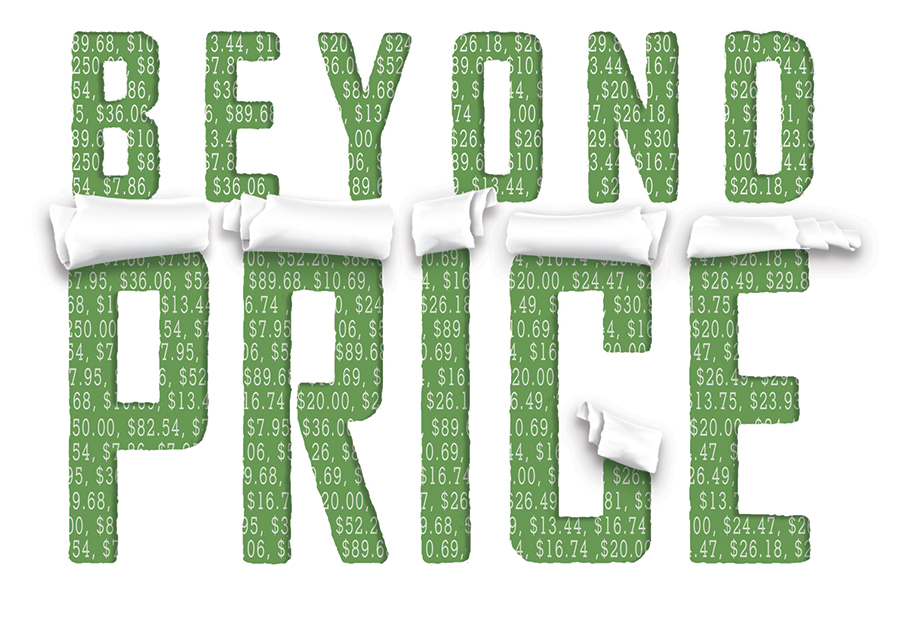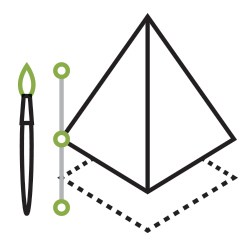|
REGISTRATION REQUIRED
Vendor Selection

HP Inc.'s Glenda Brungardt, CTSM, shares five key "soft offerings" to consider when selecting a new vendor for your trade show program.
Exhibit managers are a lot like orchestra conductors. But instead of woodwinds and brass, they select and conduct an ensemble of vendors, including everyone from labor crews and transportation providers to exhibit houses and lighting designers. The goal, of course, is for each participant to play its unique part, working together to create an exhibit program that delivers harmonious, yet hard-core, results. However, if even one player hits a sour note – or you compose your orchestra of the wrong players entirely – the conductor (and
ultimately the entire brand) suffers a poor performance. Clearly, then, vigilant vendor selection is paramount to your program's success.
Nevertheless, many exhibit managers (particularly those with heavy-handed procurement departments) tend to focus too much attention on bottom-line costs and too little attention on essential soft deliverables. These "soft offerings" – which most often involve service, knowledge, expertise, etc. – can pay huge dividends down the road in the form of expenses cut, time saved, disasters averted, and headaches avoided. That's why, as the global trade show and event marketing program manager for HP Inc., I assess five key soft criteria when I analyze each potential vendor. Rather than letting mere numbers dictate my vendors and my fate, I employ these standards to determine which one will play in tune with not only my marketing program and its existing team members, but also HP's brand and culture. While your exhibit-marketing plan has its own unique needs, these five criteria apply to almost any program and can help determine if a vendor deserves a spot in your orchestra.  Knowledge of Trends Effective exhibit managers attempt to stay abreast of industry trends, issues, products, etc. That might mean attending industry conferences, subscribing to various publications and newsletters, enrolling in industry-specific educational courses, or even keeping an ear to the ground via social media. But in our time-strapped yet information-rich world, staying on top of everything from the newest flatscreen developments and fire codes to the latest Wi-Fi legislation and Twitter tactics is nothing short of impossible. However, if you've selected the right vendors, the latest news and trends are only an email or phone call away. Vendors should be constantly on the lookout for the newest technology, products, and materials. Plus, I expect my vendors to shoot me an email periodically that simply says, "Hey, did you read this article?" or "Have you seen the new screen from Samsung? It might look great in your conference area." A high-quality vendor ensures that we have every opportunity to remain ahead of the curve – and that we're armed with as much knowledge as possible to help our team perform at its best. If vendors aren't staying on top of industry developments, continually educating their employees, and presenting me with cutting-edge solutions, then they're putting me and my program behind the times, providing a minimal bang for my buck, and doing little to earn or keep my business.
BOTTOM LINE
It's important to assess whether or not potential partners possess sufficient awareness of industry trends. ➤ It's impossible for any exhibit manager to stay up to date on every industry trend. ➤ Vendors should do their part to keep you current and position your brand on the cutting edge.
Assessment Tools
There are multiple tactics to determine if a vendor is aware of industry trends. A Look for membership in industry associations. If the vendor is an exhibit house, does it belong to the Exhibit Designers and Producers Association? Or if a firm handles international programs, is it a member of the International Federation of Exhibition and Event Services? Association memberships usually mean that the firm can access a steady stream of industry-specific information. I also look to see if a vendor has reps speaking at industry events such as EXHIBITORLIVE, Expo Expo, or EDPA Access. If so, that tells me it has specialized knowledge that peers find valuable. B Get a list of the firm's personnel. Determine if key account reps have their Certified Trade Show Marketer designation or similar certifications. CTSM provides a wealth of critical, basic information, which means the person bearing the title has a grasp of exhibit-marketing terminology, procedures, etc. C Ask questions that specifically suss out a firm's commitment to knowledge acquisition. For example, I might ask: "How do you stay on top of industry education, trends, research, etc., and how do you relay this information to clients?" Or I inquire: "How do you support continued education for employees?" Vendors should have a ready answer that demonstrates support for ongoing education.  Established Partnerships Exhibit managers wear many hats. One day they're estimating electrical requirements and ordering a scissor lift, and the next they're approving graphic designs and reserving espresso carts. As such, an exhibit manager is often a jack of all trades and the master of none. And that's fine, since exhibit marketers are generally broad-knowledge managers, not specific-knowledge technicians. That's where vendors – or more specifically the vendors' partners – enter the picture. My exhibit house should have a wide range of partnerships, or at least working agreements, with a variety of specialty providers, including everyone from flooring-system manufacturers and audiovisual experts to caterers and transportation carriers. If they don't, then they need to be willing and able to work with my own list of suppliers. Similarly, if I'm looking for a lighting-design firm, a solid candidate will have equipment-rental contacts in various locales, or perhaps sound, experience-based referrals for international lighting-equipment providers. That way, if I need to add a unique service or product to my exhibit-marketing program, we don't have to spend countless hours locating, researching, and vetting specialty vendors. If a potential vendor's partnerships are solid, positive relationships, this proves to me that it can both share the spotlight and manage minor conflicts that arise over time.
BOTTOM LINE
Determine if potential partners have established relationships with specialty vendors. ➤ Often, the way a vendor treats its partners is a key indicator of how it will treat its clients long term. ➤ Steer clear of exhibit houses that claim to be a one-stop shop. Every firm has a sweet spot that should fit your program's objectives.
Assessment Tools
Use the following tips to identify if a vendor has established partners. A To assess this criterion, ask the vendor for a list of its partners. But instead of just perusing the list, call those partners and ask them how they feel about the vendor in question. Does the vendor play well with others? Does it work with them regularly or infrequently? Are its representatives good collaborators with outstanding communication skills? Again, the quality of vendor relationships often mirrors how a potential partner will treat one of its clients. B Next, call a few suppliers that aren't on the vendor's list. Ask if they've worked with this particular company before. If they have, ask them the same questions posed to the partner firms. Perhaps the businesses have severed ties because the vendor in question was unethical or difficult to work with – or both. If the firms have never worked together, inquire about the company's overall impressions of the supplier and how it's viewed in the industry. C Finally, ask the following question in your RFP: "What's your sweet spot?" If the firm waffles on the answer or provides an "everything under the sun" response, you're dealing with another jack of all trades. But if it provides a well-developed answer that incorporates other vendors, it's likely a firm that has mastered a specific trait and built a wide network of other experts.  Ability to Handle Emergencies Let's face it: As exhibit managers, we have to be prepared for anything and everything. But we shouldn't have to go it alone. When all hell breaks loose, I need able partners who have experienced this same snafu or at least thought through a similar situation, and I expect them to help me survive unscathed – preferably with my sanity (and my exhibit-marketing program) intact. What I don't need is a partner that throws a pity party instead of addressing the problem effectively and expeditiously. I also need my vendors to be fully capable of stepping in if I am the emergency. What happens if I catch a flu bug, or my plane is stuck in a blizzard? Or what if two critical trade shows are scheduled for the exact same dates? The show must go on, and I need vendors that can pull it off without me if necessary. In a sense, this criterion is also a matter of trust, and for me, trust is earned, not freely given straight out of the gate. But before I hire any firm, I want to feel like I could very likely develop trust with its members. I'm handing this company a piece of my program (and, in a manner of speaking, my company), and how reps handle it directly impacts my brand and my career. So I need to trust that each vendor will efficiently manage unexpected situations and will ensure the show goes on no matter what, so that at the end of the day my program and my job security aren't in danger.
BOTTOM LINE
Gauge whether potential vendors have experience addressing trade show snafus. ➤ For me, trust is earned, and it's also an essential component of a successful partnership. ➤ Ask yourself whether or not you would trust each suitor with your program if you were unable to attend a show.
Assessment Tools
Use these three tips to gauge a potential vendor's level of emergency preparedness. A Every one of my RFPs includes a question similar to this: "Tell me about a time when you were supposed to deliver X, but then Y and Z prevented you from doing so." Then I consider whether the firm's answer is emotionally charged and "poor me" focused, or if it's a calm, factual reflection on how its reps formulated a solution. If a firm tells you they've never had a major incident at a trade show, it's either grossly inexperienced or blatantly lying to you. B Ask the company's existing clients about how it handles emergencies. Inquire about both problems caused by others and by itself. Also seek out the firm's former clients and ask if a snafu had anything to do with why they left. Stories coming from a vendor's former clients often prove particularly enlightening. C Run each vendor through a sort of Plan B fire drill during one of its initial presentations. That is, pick a time in the middle of the presentation and ask reps to participate in a little role-playing. Then give them an emergency scenario and ask them to walk you through their potential solutions. Analyze their answers to determine if the company goes into freak-out mode or if it calmly thinks of a solution. Although I haven't actually done this yet, I believe it would help identify if a vendor has handled similar problematic scenarios.  Attention to Detail If you drop a moldy orange into a fruit bowl, it doesn't take long before all of the fruit is fuzzy and green. The same theory applies to quality-control measures. If a firm's attention to detail is lax in one area, then typos, errors, and an overall laissez-faire attitude will seep into other areas as well – and likely into your program. Granted, we all make mistakes, myself included. But if a vendor's formal RFP response is unpolished, its written communication is filled with typos, and its grammatical prowess rivals that of a first-grader, we're going to have issues. We're also going to butt heads if any formal presentation lacks customization, and it's clear that the vendor has merely slapped our company's name on the top and called it a day. That's just plain lazy, and it shows a disregard for our valuable business. Let me reiterate: Mistakes happen. But continuous errors for which there seem to be no embarrassment, or even acknowledgement, are unacceptable, because at some point they will impact your program. Before you know it, your in-booth signage may proclaim you're a "pubic school" instead of a public school. Worst of all, these types of errors are just the tip of a usually very large iceberg, and a lack of attention to detail often carries over to the trade show floor in the form of mismatched seams, poorly run cabling, and other gaffes that become liabilities when you're courting clients.
BOTTOM LINE
Everybody makes mistakes, but if you ignore continuous errors, you're likely to end up with a sub-par supplier. ➤ Repeated typos and similar errors during the vendor-selection process may be a precursor to on-floor issues. ➤ If vendors' inattention to detail impacts your exhibit, it will look like your brand doesn't give two hoots about quality – and that's a major liability.
Assessment Tools
One or two minor errors shouldn't be a deal breaker, but use the tips below to ensure each firm shares your commitment to excellence. A The first way to assess a firm's attention to detail is to scrutinize the information it sends you. Are the proposals full of typos? Is it clear that parts of this presentation were copied and pasted from some other client proposal? If so, this is the aforementioned moldy orange in the fruit bowl. B Another way to check for quality and craftsmanship is to get a list of the firm's clients that are exhibiting at a show you currently attend. Then walk the show floor during setup and watch how exhibitry (or whatever element the vendor in question is providing) is assembled and the care that's taken to make sure everything is "just right." Note how this vendor treats other suppliers involved in the setup process, and consider some of the criteria discussed on page 44. C Also, walk the halls during the show and compare the overall quality of the product or service being provided to these clients versus your expectations. For example, do all the graphic seams match precisely? Is the carpet lumpy? Is the presenter's microphone volume properly set to accommodate a crowded show hall? Finally, pepper the on-site exhibit managers with questions. Talk about all of the five criteria, but also drill down into questions about quality control, the frequency of errors, etc.  Understanding of the Brand Another aspect I'm especially aware of is a suppliers' understanding of my company, its brand, products, services, and our culture. Sure, most vendors know a thing or two about HP. But shortly after we split into two separate firms, I had several vendors presenting pitches that weren't even aware of the division. They were talking to me in terms of "enterprise this and that," but in fact the enterprise company is a completely separate entity from HP Inc. If a vendor hasn't taken the time to carefully research my firm, its products and services, the overall market, my target market, and HP's place within the industry, then that's not only a strike against them in terms of attention to detail, but also a big red flag regarding HP's importance – or lack thereof – to their firm. And if they are unwilling to take a little time to research my company in an effort to win my business, they're probably not going to put any more effort into my account once I've forked over the cash. Granted, an audiovisual provider doesn't need to fully grasp every nuance of our firm. But a company that's deeply involved in our trade show program can't serve the brand when it doesn't understand it. I want to know if a vendor perceives my business as a transaction or a long-term partnership. Sometimes a transaction is fine. But if you're looking for a partner, be sure any suitors are as committed to the relationship as you are.
BOTTOM LINE
If a vendor hasn't taken the time to research your brand, that's a major red flag. ➤ A vendor that has not done its homework likely views your potential business as a short-term exchange of money for goods and services. ➤ If you are seeking a long-term partner, prioritize firms that come prepared with a good understanding of your business.
Assessment Tools
sometimes it's obvious a vendor doesn't know your brand from a hole in the wall. Other times, use the following criteria. A Ask this question in your RFP: "Describe our company's offerings, market position, and brand attributes." Then analyze the answers. This is the most effective way to ascertain whether the vendor has a solid understanding of your company. Did the firm copy and paste information from your website, or was there some thought and research that went into the answer? Did reps use terms specific to your company and industry, or was the vocabulary vague and not industry specific? And was the answer a sentence or two, or a few paragraphs? Trust me: You'll know right away if the vendor is completely blowing smoke. B Use the client list you've already obtained and take a close look at previous work that the vendor has produced for each one. Do the exhibits clearly represent the exhibitor's brand? Do the relationships between product areas and company offerings make sense? Or are there some disconnects that come from a fundamental lack of understanding? C Finally, talk to some of the vendor's existing clients. Ask them how long it took to get the firm up to speed. That is, did they have to spend a ton of time educating the vendor about their companies, or did the vendor educate itself and come to the table ahead of the curve?
|
|
|
||||||||||||||||||||||||||||
|
|
||||||||||||||||||||||||||||
|
TOPICS Measurement & Budgeting Planning & Execution Marketing & Promotion Events & Venues Personal & Career Exhibits & Experiences International Exhibiting Resources for Rookies Research & Resources |
MAGAZINE Subscribe Today! Renew Subscription Update Address Digital Downloads Newsletters Advertise |
FIND IT Exhibit Producers Products & Services All Companies Get Listed |
EXHIBITORLIVE Sessions Exhibit Hall Exhibit at the Show Registration |
ETRAK Sessions Certification F.A.Q. Registration |
EDUCATION WEEK Overview Sessions Hotel Registration |
CERTIFICATION The Program Steps to Certification Faculty and Staff Enroll in CTSM Submit Quiz Answers My CTSM |
AWARDS Exhibit Design Awards Portable/Modular Awards Corporate Event Awards Centers of Excellence |
NEWS Associations/Press Awards Company News International New Products People Shows & Events Venues & Destinations EXHIBITOR News |
||||||||||||||||||||
|
||||||||||||||||||||||||||||






